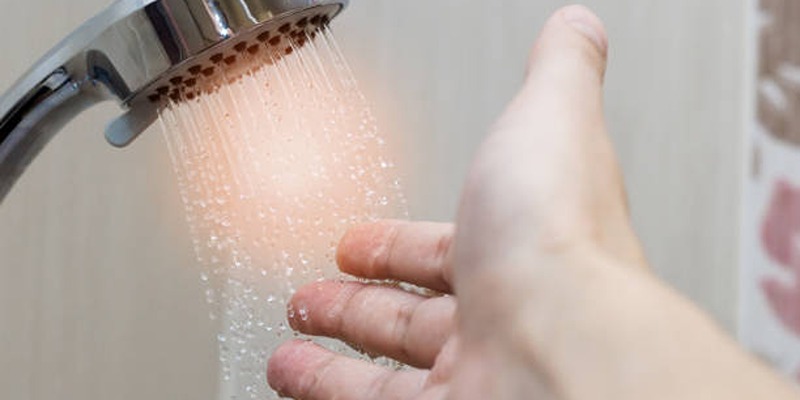Say Goodbye to Long, Hot Showers This Winter to Avoid Skin Issues
Aug 19, 2024 By Madison Evans
As winter approaches and temperatures drop, the allure of long, hot showers can be hard to resist. However, indulging in these steamy baths during the colder months can lead to unexpected skin issues that many may not anticipate. Hot water can strip the skin of its natural oils, leading to dryness, irritation, and even conditions like eczema or dermatitis. This is particularly concerning for individuals with pre-existing skin sensitivities. Instead of enjoying those extended warm showers, finding alternative methods to stay warm and maintain skin health becomes essential. In this article, we will explore the impact of hot showers on your skin during winter and offer practical tips to keep your skin nourished and hydrated throughout the season.
Alternatives to Long Showers

When it comes to staying warm without resorting to long, hot showers, there are several effective alternatives to consider. First, try taking a warm bath instead, but limit the time spent in the water and use hydrating bath oils to help lock in moisture. Another option is to invest in a high-quality humidifier for your home, as adding moisture to the air can significantly alleviate dryness in your skin. Layering clothing instead of running hot water can also help maintain body warmth; opt for thermal wear made from breathable materials.
Consider using a body lotion or cream immediately after bathing to create a barrier that keeps skin hydrated. Short, lukewarm showers followed by moisturizing are also beneficial; they can refresh you without the adverse effects of hot water. By incorporating these practices, you can protect your skin while still enjoying a cozy winter experience.
The Importance of Skin Hydration
Maintaining proper skin hydration during winter is crucial to prevent dryness and irritation.
Skin Hydration
Skin hydration is the process of ensuring that the outer layer of skin maintains a healthy moisture balance. It is essential for skin elasticity, appearance, and function. When the skin is properly hydrated, it can better protect against environmental aggressors and retain its integrity. Dehydrated skin can lead to irritation, cracking, and increased susceptibility to infections.
The Role of Moisturizers
Moisturizers play a vital role in skin hydration by providing an additional layer of protection and sealing in moisture. Look for products containing ingredients such as hyaluronic acid, glycerin, and ceramides, which are known for their hydrating properties. Applying moisturizer right after bathing locks in water and helps replenish the skins moisture barrier, making it a critical step in any winter skincare routine.
Hydration from Within
Staying hydrated isn't solely about external products; internal hydration is equally important. Drinking plenty of water throughout the day helps maintain overall skin hydration levels. Additionally, consuming foods rich in healthy fats, such as avocados, nuts, and fatty fish can aid in skin health. These foods help to keep skin plump and moisturized from the inside out.
Avoiding Harsh Ingredients
It's essential to be mindful of the products you use on your skin during winter. Many cleansers and skincare items, particularly those containing strong exfoliants, can exacerbate dryness. Instead, opt for gentle, hydrating cleansers that wash away impurities without stripping essential moisture. Reading labels and seeking out products designed for sensitive or dry skin can make a difference in maintaining hydration levels.
Daily Habits for Healthy Skin
Incorporating simple daily habits can significantly promote skin hydration. Besides establishing a consistent skincare routine that includes cleansing, toning, and moisturizing, consider using a humidifier at night to combat dry air. Additionally, avoid prolonged exposure to harsh winter winds by covering your skin when outdoors. Limiting hot baths and showers, as mentioned previously, also contributes to better skin health during chilly season. By adopting these habits, you can enhance your skin's hydration and resilience throughout winter.
Recommended Shower Time
Finding the optimal shower time is crucial for maintaining skin health during winter. Adopting a balanced approach can make all the difference. Here are some recommendations:
- Aim for showers no longer than 10-15 minutes.
- Use lukewarm water instead of hot to prevent moisture loss.
- Limit shower frequency to a few times a week, focusing on essential cleansing.
- Consider shorter, more frequent washes when needed for hygiene rather than relaxation.
- Always apply moisturizer immediately after showering to lock in hydration.
Choosing the Right Water Temperature

When it comes to selecting the right water temperature for your showers, lukewarm water is the optimal choice during winter. This temperature strikes a balance that helps cleanse the skin without causing excessive dryness. Unlike hot water, which can strip the skin of its natural oils, lukewarm water maintains essential moisture levels, preventing the skin from becoming irritated or flaky.
To find your ideal temperature, aim for water that feels comfortably warm but not scalding. This allows for a refreshing experience that also promotes skin health. It's also beneficial to limit the time spent under the water; shorter showers can further reduce moisture loss. For those who enjoy a relaxing soak, consider reducing the water temperature gradually, mixing it with cool water to help create a soothing experience without sacrificing hydration. Ultimately, being mindful of water temperature can significantly contribute to maintaining skin's softness and elasticity throughout the winter months.
Post-Shower Skin Care Tips
What you do after your shower is just as important as how long and hot it is. Applying a suitable moisturizer immediately after showering helps seal in moisture and protects the skin barrier. Look for products containing ingredients like hyaluronic acid, glycerin, or ceramides, as these can enhance hydration levels. Establishing an effective post-shower skincare routine will fortify your skin against winter dryness.
Conclusion
Maintaining healthy skin during winter requires a thoughtful approach that combines proper hydration, diligent skincare routines, and mindful habits. By selecting the right water temperature for showers, limiting exposure to drying elements, and employing effective post-shower practices, you can significantly improve your skin's resilience against the harsh conditions of the season. Additionally, incorporating internal hydration through adequate water intake and nutrient-rich foods will support skin health from the inside out. By adopting these strategies, you can ensure your skin remains supple, hydrated, and glowing all winter long.








